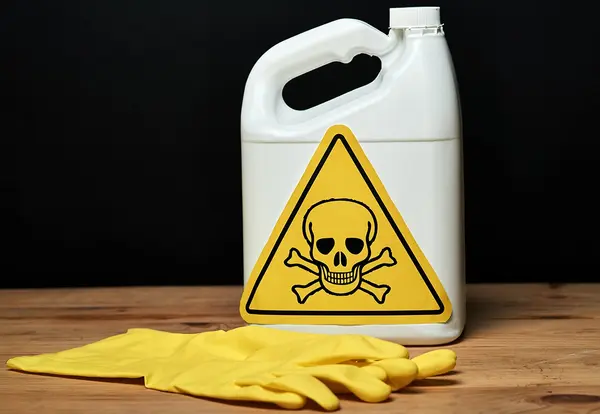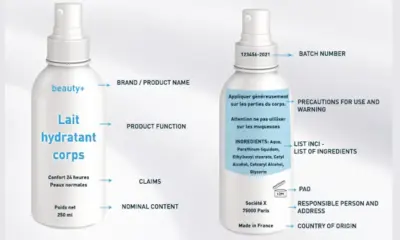Policy & Regulation
NGO Accuses European Commission of Allowing “Hazardous Chemicals” in Personal Care Products

The European Commission (EC) is facing criticism for postponing a ban on everyday products that may contribute to cancer, infertility, and other health issues, according to an investigation by the European Ombudsman. This body holds EU institutions accountable for their actions.
In light of the investigation, the European Environmental Bureau (EEB) argues that the EC is prioritizing business interests over human and environmental health. The delays could allow thousands of metric tons of harmful chemicals to continue being used in various products each year. The NGO claims the European Commission has routinely missed legal deadlines for nearly two decades.
NGO Accuses European Commission of Allowing “Hazardous Chemicals” in Personal Care Products. Personal Care Insights has reached out to the EC for comment and is currently awaiting a response. Meanwhile, Tatiana Santos, the EEB’s head of chemicals policy, stated, “Scientists called for controls. The Commission dragged its feet. Why? The weakness of their excuses tells its own story. A lack of meeting rooms to make life-and-death decisions? Tell that to a family hit by cancer or infertility from chemical exposure.”
Santos added, “Every day of Commission delay lets dangerous chemicals flow into products and poison the public. Europe should prove a greater sense of urgency and move away from them and toward companies innovating safer, green chemistry for a long-term, prosperous future.”
The NGO asserts that EU officials have violated the law by delaying bans on dangerous chemicals. The Ombudsman’s research reveals that the Commission takes an average of 14.5 months to prepare draft decisions, far exceeding the three-month legal deadline—almost five times the limit. In some cases, the process stretches into several years.
The EEB contends that these delays jeopardize human health and the environment, as companies can legally continue to use chemical substances that are potentially carcinogenic, mutagenic, or toxic for reproduction.
Recent studies indicate that certain personal care products may expose girls to endocrine-disrupting chemicals (EDCs), which can trigger early puberty. EDCs interfere with hormones in the body’s endocrine system.
NGO Accuses European Commission of Allowing “Hazardous Chemicals” in Personal Care Products. The EEB speculates that a culture of inaction within the Commission could lead to further delays. ClientEarth, an environmental law charity, aligns with the EEB’s concerns. Legal expert Hélène Duguy stated, “The Ombudsman’s investigation shows how reckless the EU Commission has been with chemicals rules. Yet those rules exist to protect people’s health.”
Duguy added, “This unacceptable behavior undermines the rule of law and people’s trust in EU institutions. It’s time for EU officials to heed the Ombudsman’s recommendations and prioritize public interest over the profits of toxic companies.”
The Ombudsman has urged the EC to review its internal procedures for preparing authorization decisions under REACH, which aims to phase out or regulate the use of dangerous chemical substances.
Under REACH, companies using chemical substances classified as “of very high concern” must gain authorization from the EC. The Commission then presents a draft decision to the REACH Committee, which consists of representatives from Member States who vote on the authorization.
The EEB has identified “maladministration” in the EC’s failure to ensure transparency in the decision-making process. The Ombudsman notes that delays may stem from insufficient information in many companies’ applications, urging the Commission to ensure that all necessary information is provided and to prioritize rejecting incomplete applications.
“With the upcoming REACH revision, the Commission is obligated to adopt decisions (not just draft ones) as swiftly as possible after receiving ECHA’s opinion. A binding act like final adoption would allow interested parties to initiate legal action,” the EEB explained.
Under the new revision, companies with rejected applications would be prohibited from using the substances in the EU. The Ombudsman criticized the lack of information available regarding the REACH Committee’s discussions, stating that existing summaries do not adequately capture the status of individual files or the reasons for delays, such as disagreements among member states. The Ombudsman has called for the EC to provide “timely and more substantial” summaries of Committee meetings to mitigate public scrutiny of the “excessive” delays.





















